Anytime someone begins their search for a new headset for use with their computer and mobile devices, the wearing options are normally pretty limited.
Among the headset choices you’ll find are:
- Over the head, covering one ear (mono)
- Over the head, covering two ears (duo)
- Over the ear / in the ear
- Behind the neck
Something that all these wearing styles have in common is the ear speaker(s) either cover the ear, rest up against the ear, or are placed inside the ear canal. This has been the norm for decades. However, there’s a new option that’s now hitting the market that has a lot of people standing up, and taking notice.
In this blog, I’m going to introduce you to a new type of headset that’s designed for use with your computer, as well as with your mobile devices. Specifically, I’m referring to the new AfterShokz Opencomm UC Bluetooth wireless headset.
But, before I dive into all the details, I wanted to let you know that I recorded a Youtube video where I provide an overview of the new AfterShokz Opencomm headset. In this video, I also give you a sample of the audio so you know how it sounds, and finally, I put it up against some different noises to see how well it does to reduce it.
If you’re still with me, then let’s jump into finding out what this new AfterShokz Opencomm UC Bluetooth wireless headset is all about.
Up front, you’ll quickly see that this headset isn’t worn in the most traditional way. Most headsets, as I alluded to above, are worn over the head, or over the ear.
The AfterShokz Opencomm headset is worn behind the neck. That alone makes this fairly unique as the primary wearing style. Yes, there are some headsets that offer a neckband option, but it’s just that, an option. With the AfterShokz, there is no option as this is the way the headset is worn.
Besides the wearing style being a bit unique, there’s also another thing that helps to make this something you don’t see every day. What I’m referring to is the ear speakers.
As noted earlier, other headsets typically have a speaker that goes against the ear, or perhaps in it.
The AfterShokz Opencomm headset uses bone conduction technology that uses vibrations to project sound directly to the Cochlea bypassing the eardrum, and without being over the ear at all.
Having been associated with headsets for a very long time says to me that this isn’t your Mama’s headset. This is a cat of a completely different breed.
Doing a quick Google search on Bone Conduction, it provided me with this return:
“Bone Conduction bypasses the eardrums. ... These devices decode sound waves and convert them into vibrations that can be received directly by the Cochlea so the eardrum is never involved. The “sound” reaches the ears as vibrations through the bones (or skull) and skin.”
If you’d like to read a little more about bone conduction, as well as a bit of history and some of the different applications for this technology, here’s an article that you might be interested in on the subject.
Ok, so now that you’ve been introduced to bone conduction technology and how it relates to headsets, what else might you want to know about the AfterShokz Opencomm?
Most people are interested to know things such as:
- Battery life
- Bluetooth version being used
- Audio quality
- Noise canceling ability
- What it connects to
- Comfort
- How it sounds when listening to music
- Wireless range
- Warranty & Price
If these tick some of the boxes that have your curiosity, then let’s check out some of those details to see how the AfterShokz scores.
Battery Life
The AfterShokz Opencomm headset comes with a battery that delivers a surprising 16 hours of talk time. Frankly, that surprised me a bit. I cover headsets. In fact, I cover a lot of them.
And, in a frame like the one used on this headset, it just doesn’t look, to me, like it could support a battery capable of delivering that much talk time, but it does. Impressive!
So, if you have a really busy day and are using your headset all day long, and even into overtime hours, this headset will keep up, and won’t die on you. In fact, you don’t even need to recharge it overnight as you’re required to do on a lot of other headsets.
You could likely, and safely, grind your way through a couple of work days before a recharge is needed. That’s convenient, and a nice feature.
Bluetooth Version
The AfterShokz Opencomm uses Bluetooth version 5.0, which is the latest Bluetooth version. A lot of the headsets I’ve reviewed very recently, use a version below that. This makes the AfterShokz headset one that uses a current, up to date, Bluetooth version which is good.
Audio Quality
Here, it’s easy to find yourself on a slippery slope. Audio quality is so subjective. What sounds good to me, might sound horrible to someone else. Still, I do want to share my opinion on this headset and give you my thoughts on how I think this headset sounds.
Overall, I think it sounds decent. Is it the best sound quality (and I’m referring to how my voice sounds here) I’ve heard to date? No, it’s not. But, it sounds absolutely good enough to use on any business call you might find yourself on, such as a Zoom type video call, or perhaps on a voice call from your favorite voice provider like RingCentral, Dialpad or others. Not the best, not the worst, but overall solid.
Noise Canceling
Removing unwanted background noise in a work environment is something that ranks high among headset shoppers. Clearly some headsets are better at this than others.
So, how did the AfterShokz Opencomm headset perform when put up against annoying sound? Being honest here, I’d have to say it was about average. Though it did remove some of the noise I threw at it, I could still hear it.
Some headsets I’ve tested in the past did far better, but then there were others that didn’t do quite as good. That tells me that the AfterShokz Opencomm headset would score about a 5 on a scale of 1-10 if I were to give it a numeric rating.
Depending on how much noise is in your specific work environment, this might be just fine if noise isn’t off the chart where you work.
Connectivity
What does the AfterShokz Opencomm wireless headset connect to?
- Computers
- Mobile Devices
The headset comes with a USB dongle / adapter that pairs up to the headset immediately by simply turning on the headset. Quick, easy, and no sweat.
When connecting to a mobile device, there’s a pairing button on the headset that needs to be held down until it gets into the pairing mode. From there, it will be found by your mobile device for you to select. Very easy to do.
Comfort
Comfort is one of those subjects like sound quality. It’s subjective. In spite of this being a subjective topic, I did find it quite comfortable to wear. There wasn’t anything up against my ear, or in it, to create fatigue.
The band comfortably and lightly rests behind the head, just above the shoulders, with the speakers gently resting near the ear. I found this headset comfortable enough to wear for long periods of time, and I sense, more comfortably than other headsets.
Comfort not only involves design, but weight as well. The AfterShokz Opencomm headset weighs 1.16 ounces. A few things that weigh about this much include:
- About 6 sheets of paper
- 1 pencil
- A slice of whole grain bread
- 1 compact disk (though these aren’t really used anymore)
Knowing how the AfterShokz Opencomm headset compares in weight to these common household items, it should give you the sense that it really doesn’t weigh all that much. In fact, I think it would be safe to say that it’s lightweight. Especially if you compare the weight of this headset against other models such as those worn over the head.
Sound quality when listening to music
Unfortunately here I have to knock it a bit. To me, the sound was average at best. The bass wasn’t bumping, and the highs were, well, not all that high. All the ranges, to me, were pretty much pushed together into the mid range.
Yes, I could hear bass, and yes, I could hear highs, but when you compare those sounds to what I’m used to hearing, it left me wanting a better listening experience.
In good conscience I can’t rate the AfterShokz Opencomm headset high in this category. I don't know if the lack of musical audio quality is traceable back to the bone conduction setup or not, but in any case, I’d want more, especially if the headset would be used regularly with music applications.
But, to be fair, this headset isn’t really designed for that purpose. Clearly if your need is for a headset for music and other audio applications, you’d be well advised to select a different model.
On the other hand, if music represents a very small percentage of your intended use, then the AfterShokz Opencomm may be a good headset for you to consider.
Wireless range
The AfterShokz Opencomm wireless headset is rated to provide up to 33 feet of wireless range. Though I didn’t test this, I can say that most headsets that have this same rating typically deliver close to that stated range. There will always be an exception, but in a general sense, you should expect to receive somewhere in that 33 feet range with this headset.
Headsets that have higher ratings many times deliver much less. For example, DECT headsets that have a stated range of up to 350 feet typically provide about half that distance.
This is because tests used to determine wireless range estimates are considered open field, or line of sight. This means the tests were conducted under ideal conditions with no obstructions at all.
Anyone who’s used a headset in a real world situation knows that obstructions are abundant, which serve as barriers for maintaining a strong wireless connection. As a result, wireless range is compromised, and in the end, reduced.
Warranty & Price
The AfterShokz Opencomm wireless headset comes with a 2-year warranty, and a manufacturer suggested price of $199.00.
The 2-year warranty, in my opinion, puts it in line with other wireless headsets in this space. It would raise my eyebrow a bit if it only came with a 1-year warranty, but thankfully it doesn’t. So, good call by the manufacturer to slap a solid 2-year warranty on this headset.
As for the price at $199.00, that too is about what I’d expect for a headset like this. Easily it could be priced a little above that rate, or, a bit lower and still be within the approximate price range for other headsets it would be competing with.
I think the price is fair and reasonable given the type of device it is, and the unique features and fitment.
Final Thoughts
Getting to the bottom line, it would be reasonable to ask if I’d recommend this headset. Though this is the first headset of this type that I’ve reviewed, I’d have to say yes, I would recommend it.
In particular, for anyone who has a need for a wireless Bluetooth headset for use with a computer and /or mobile device. And, for someone who can’t wear the traditional headset styles (over the head, or on/in the ear), this would make for a compelling consideration.
This wireless headset is made from a rubberized, silicone type material which allows it to carry an IP55 water rating. This means that you can get this headset wet, but don’t make plans anytime soon to take a dip in the pool while wearing it. If you want to use it while working out, for example, you’ll be fine.

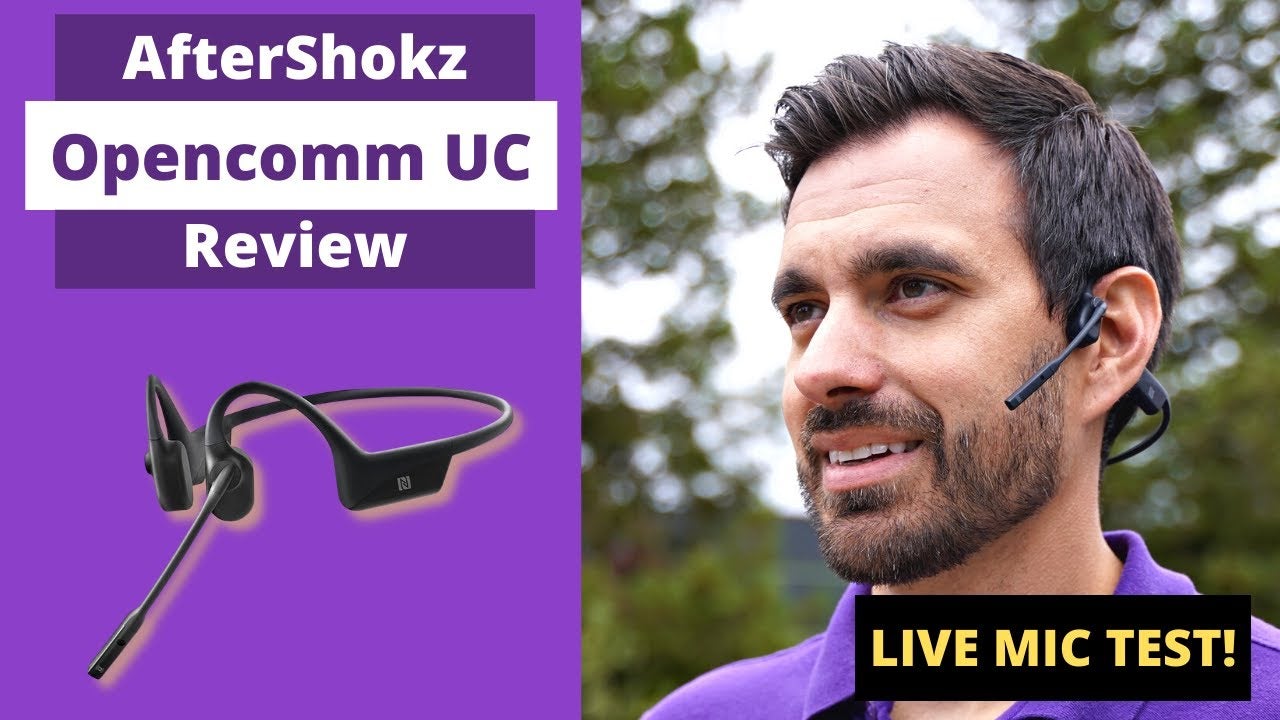









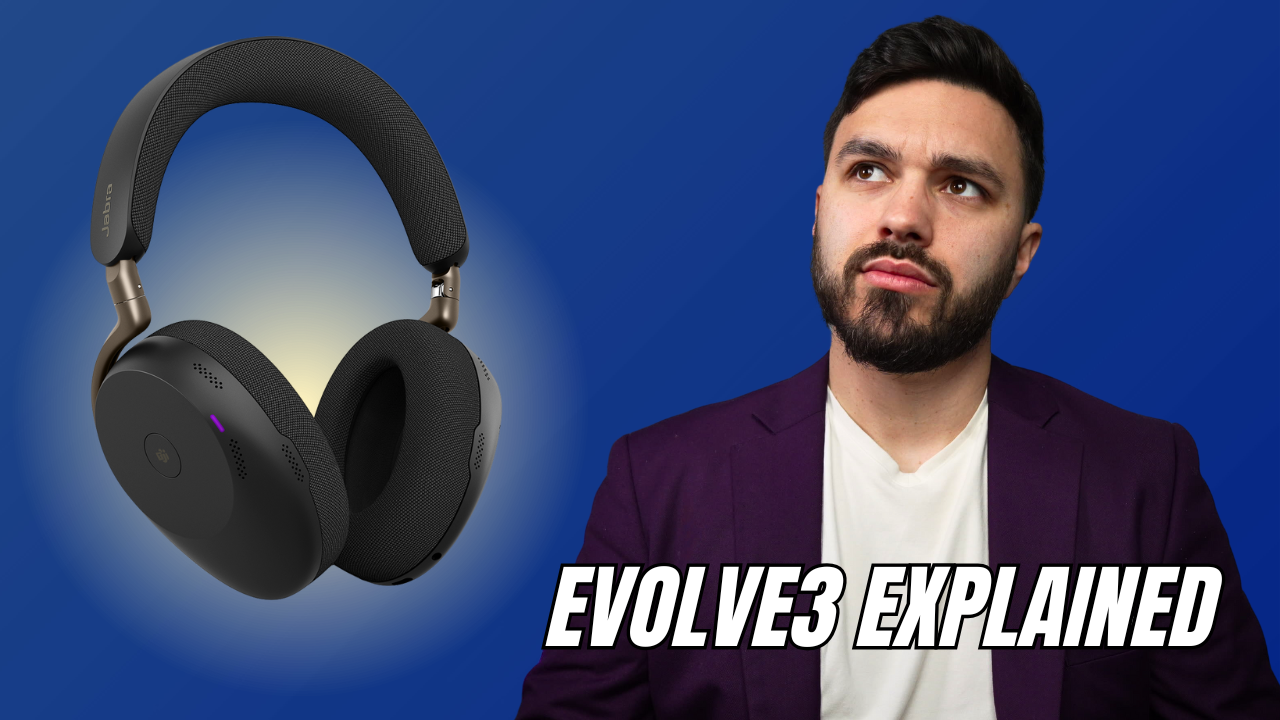
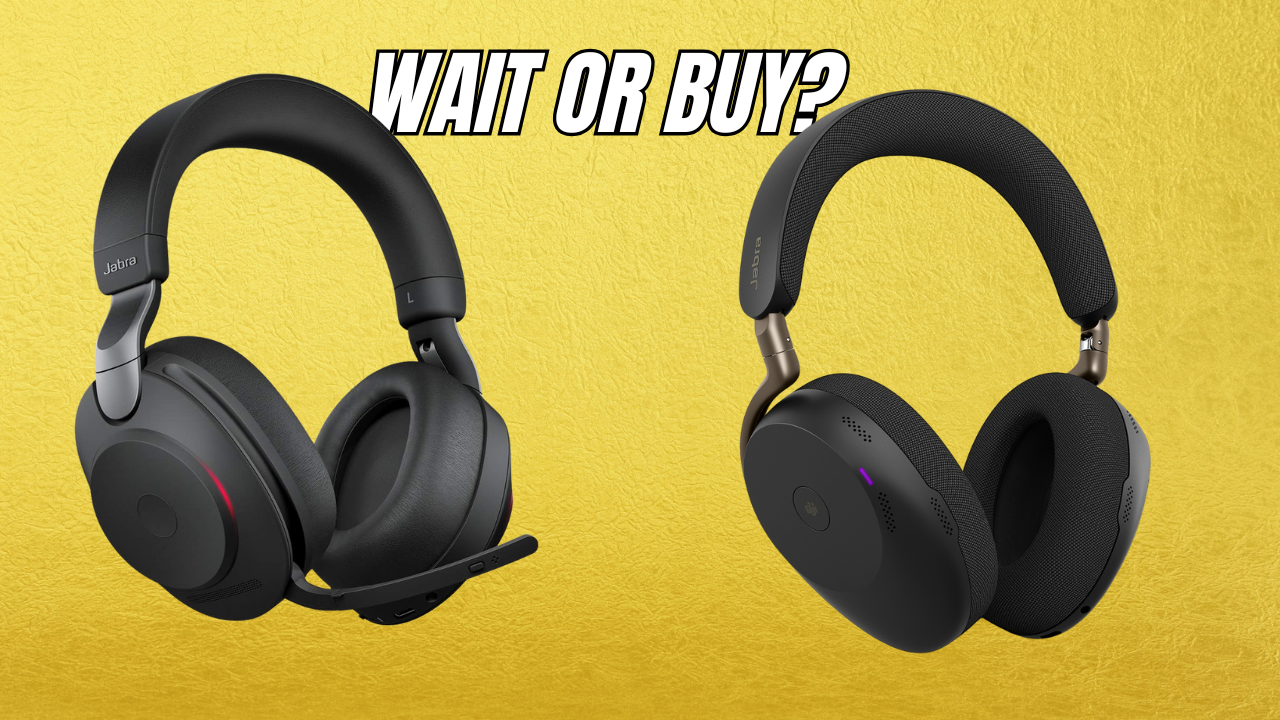
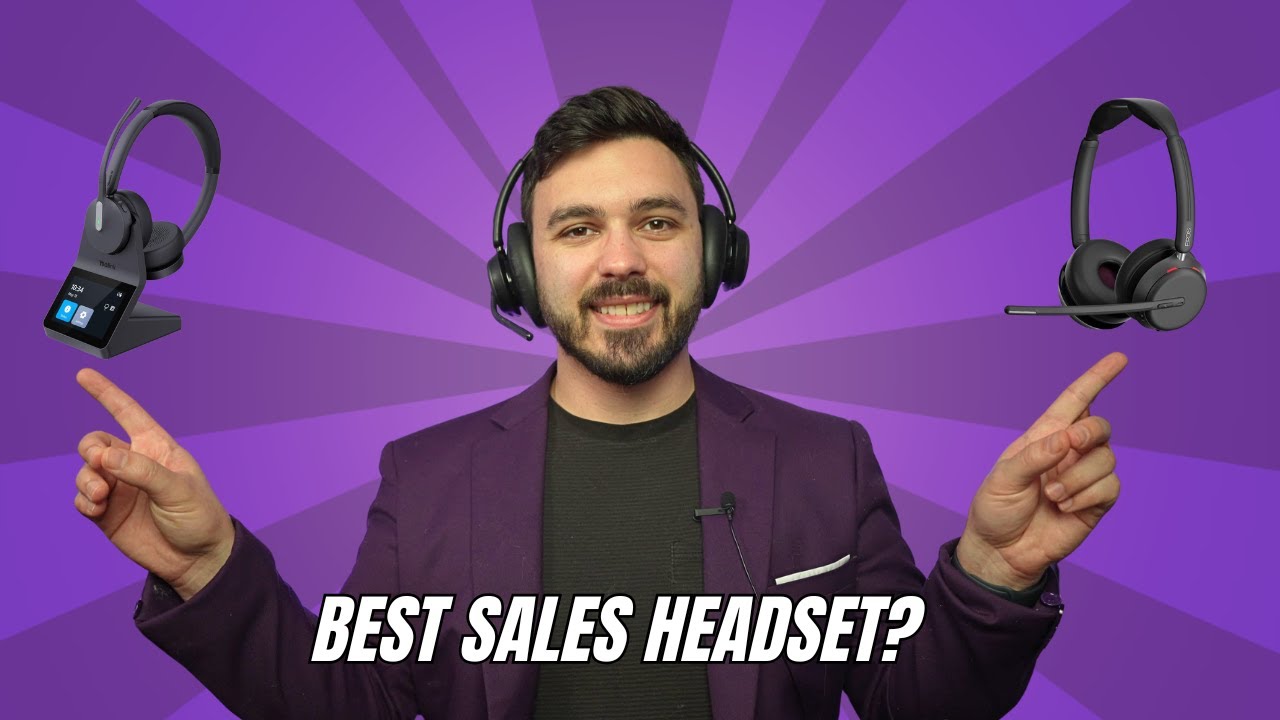
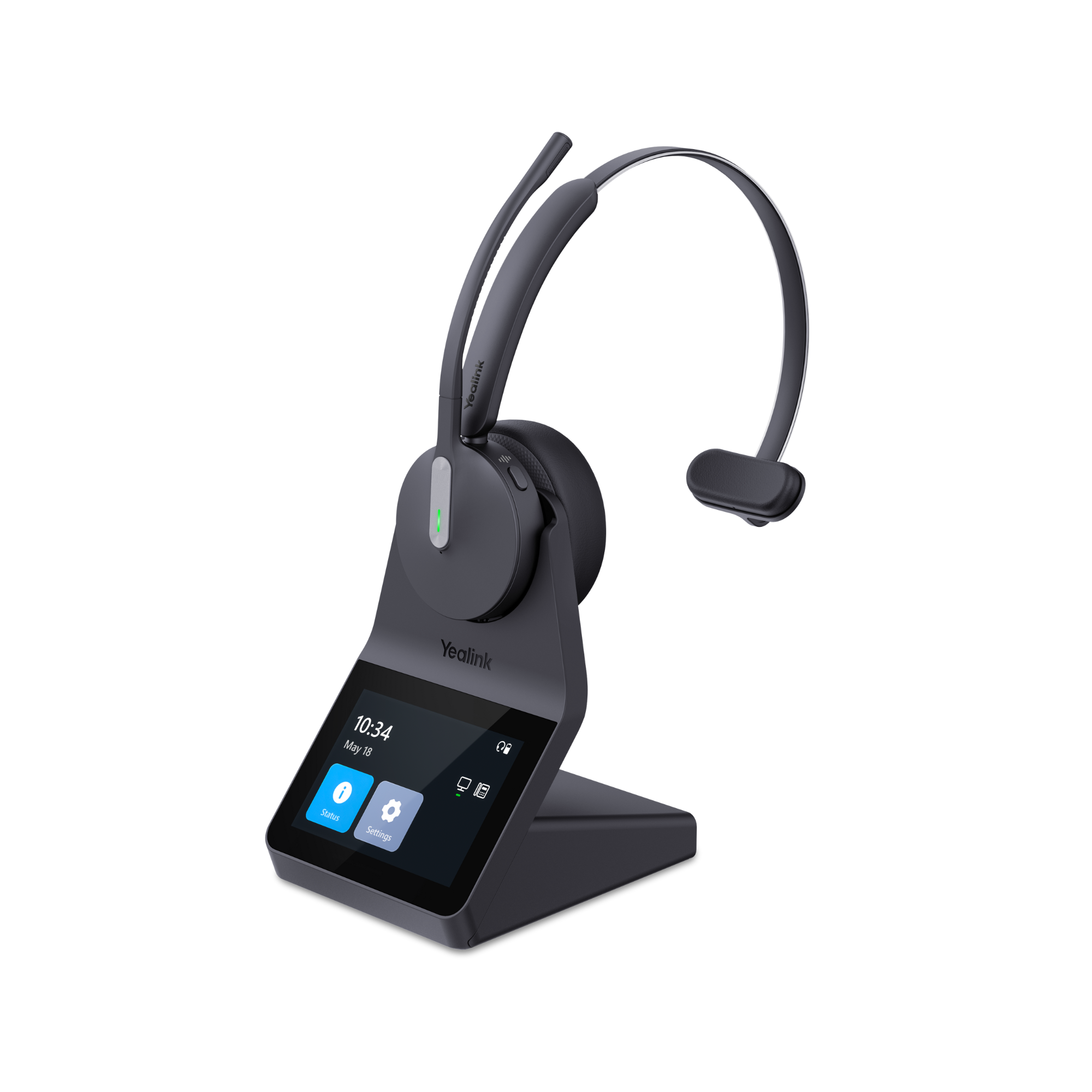

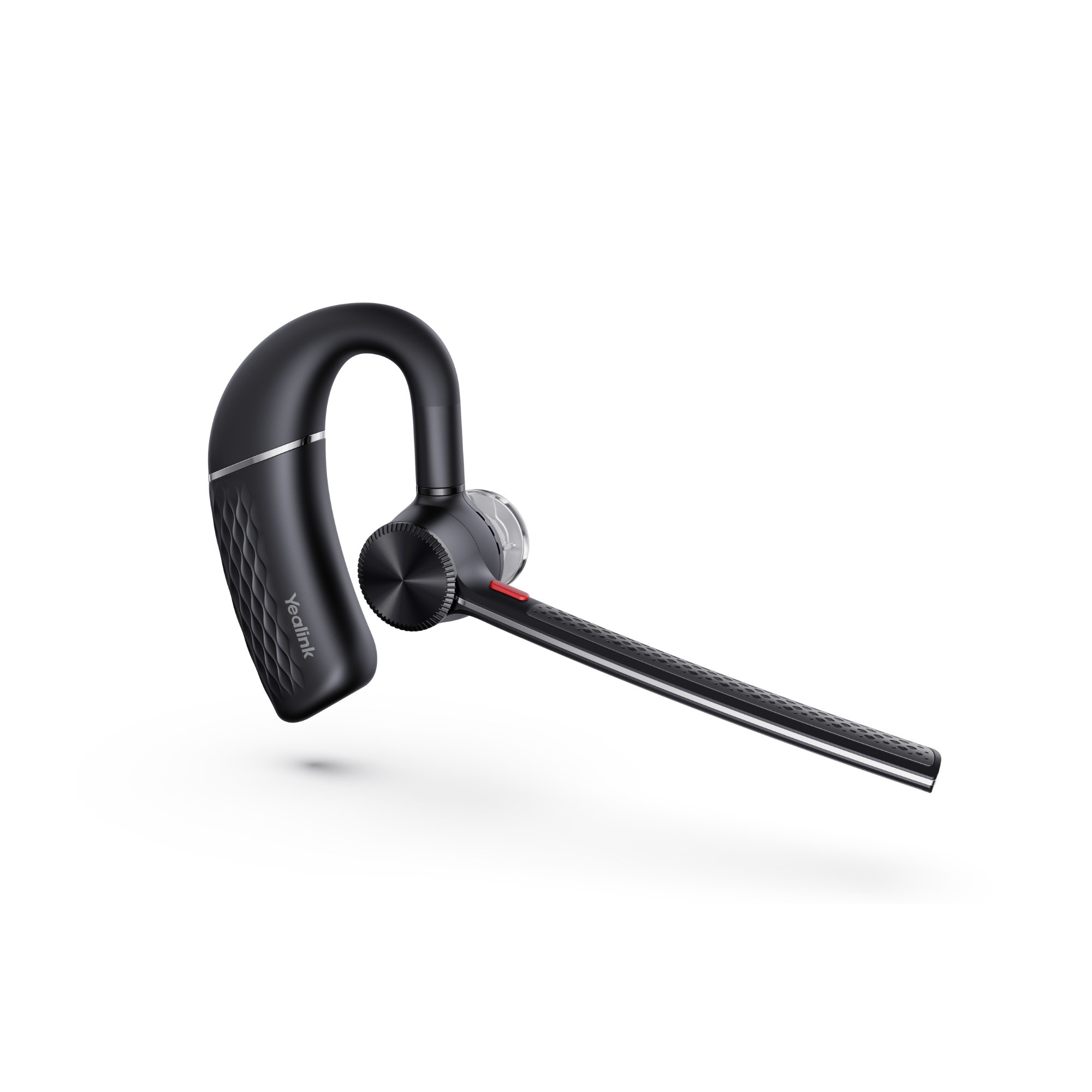
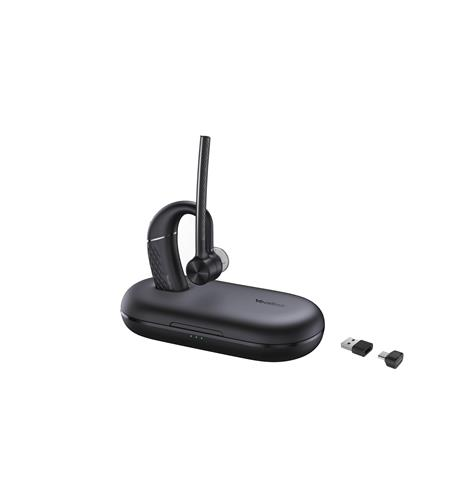
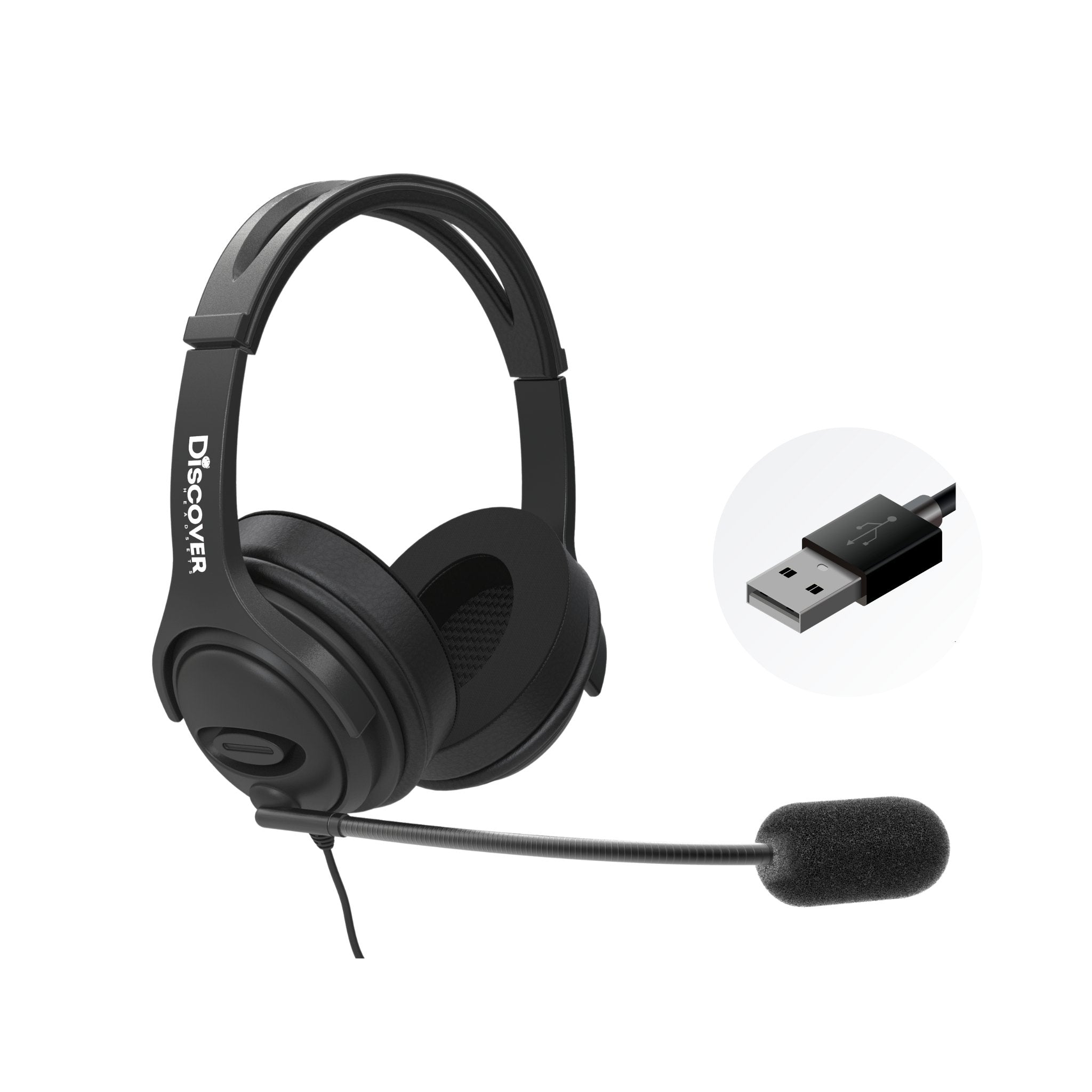

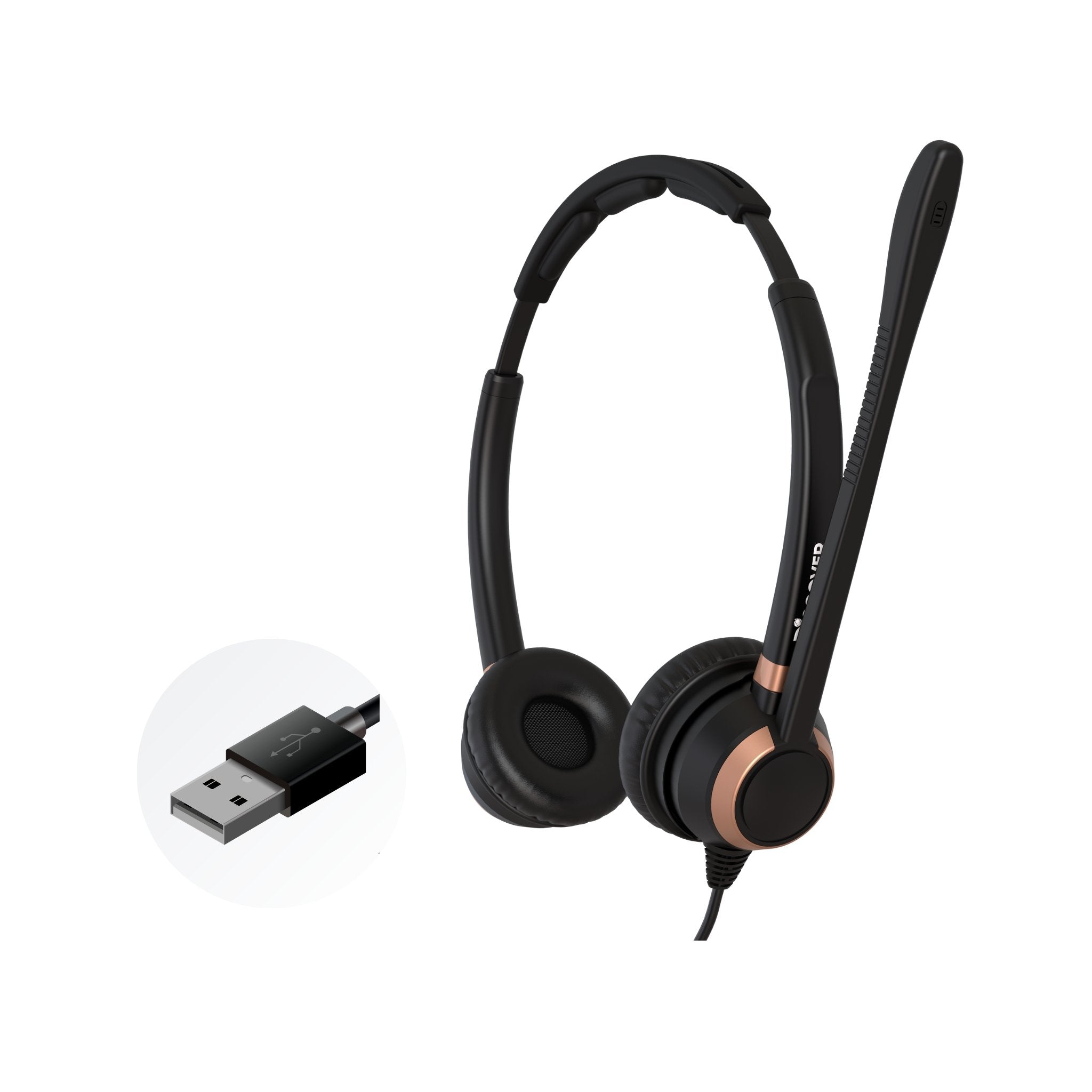

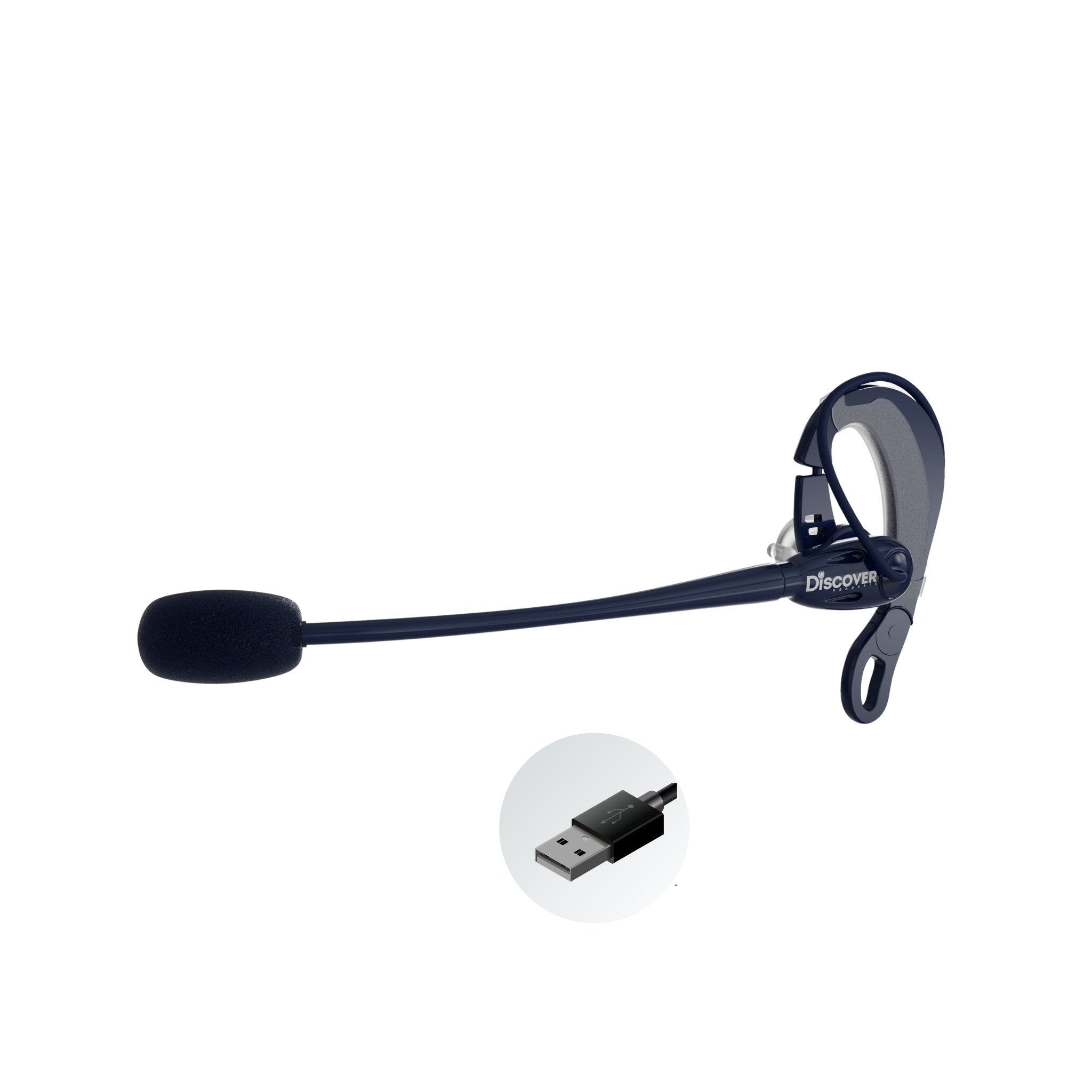

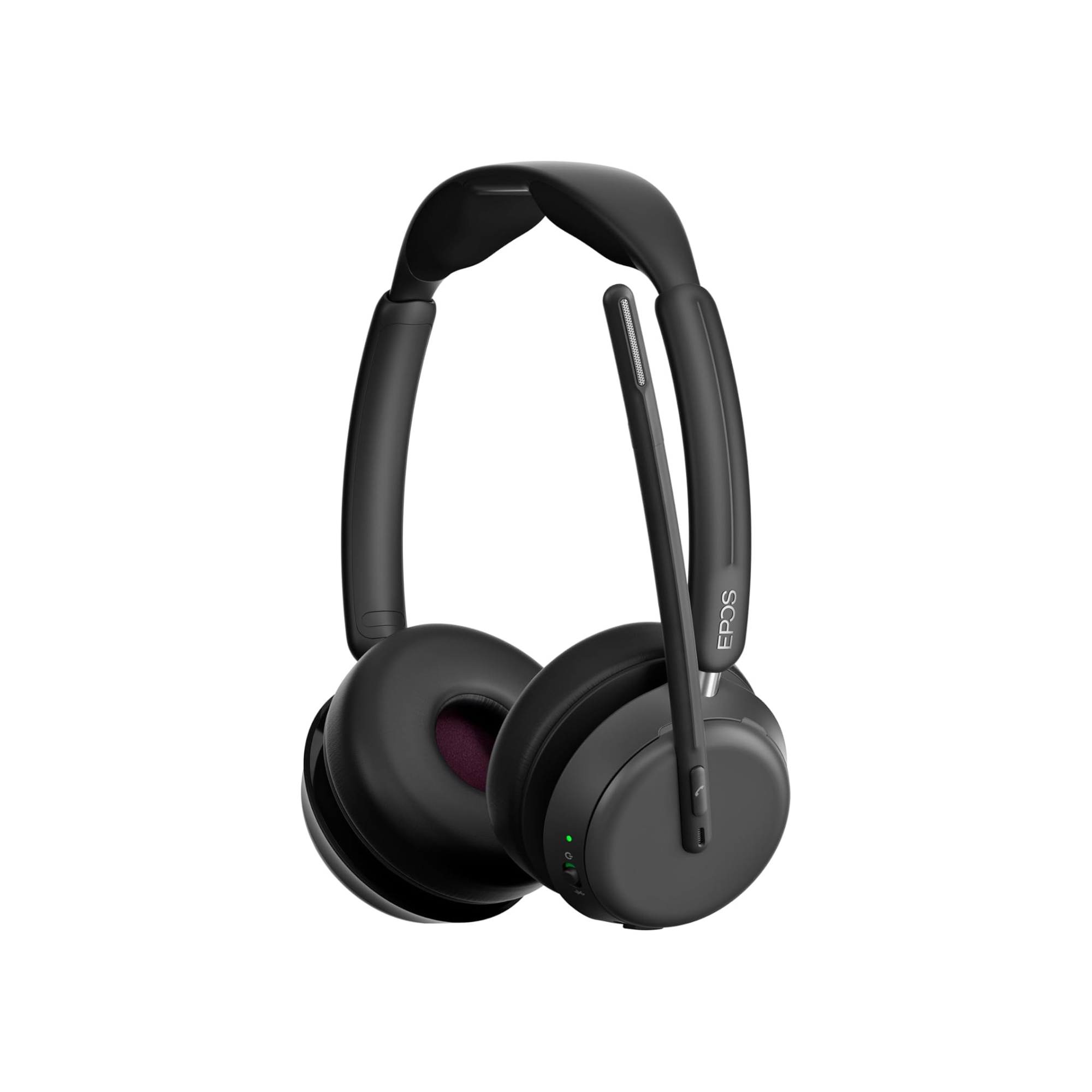

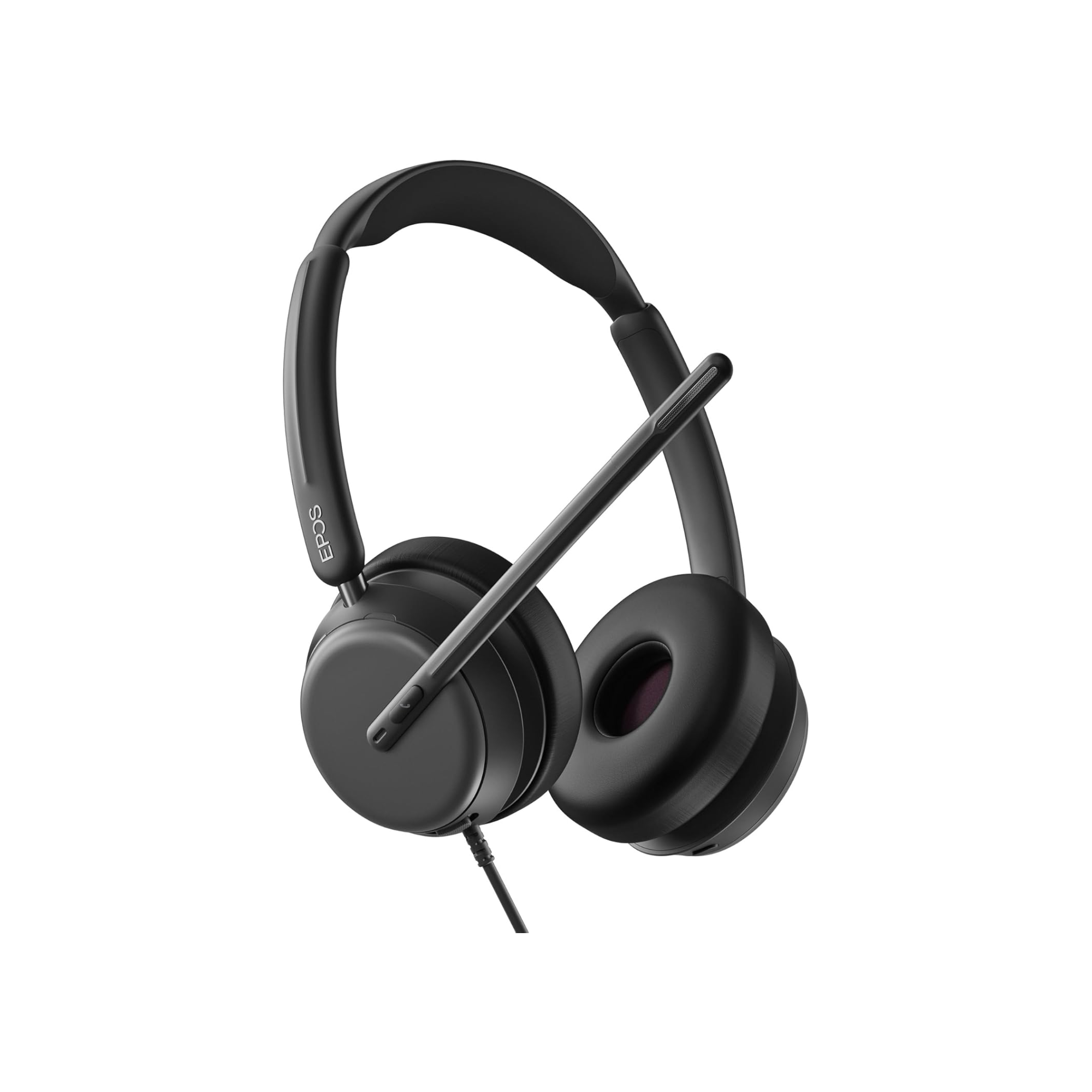

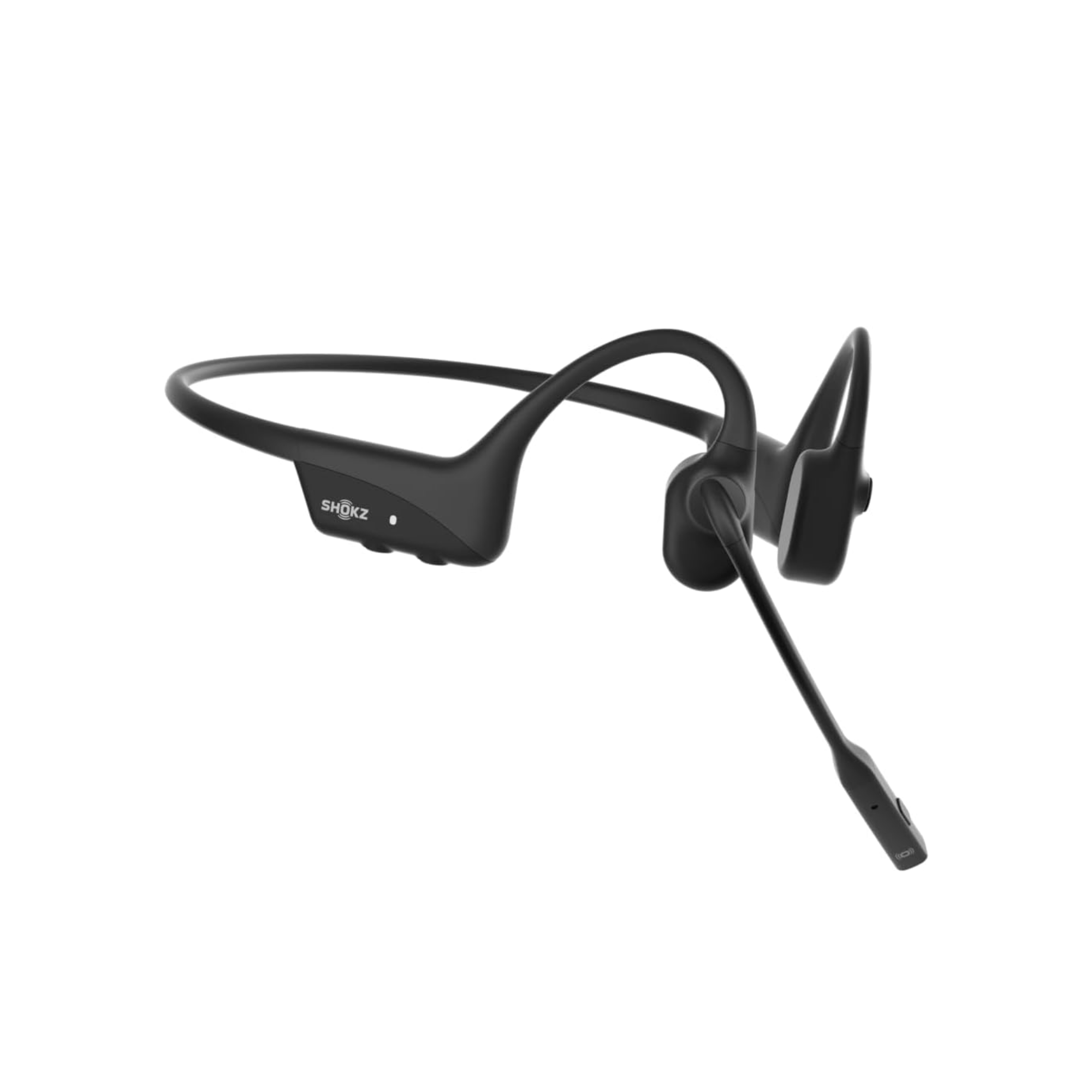
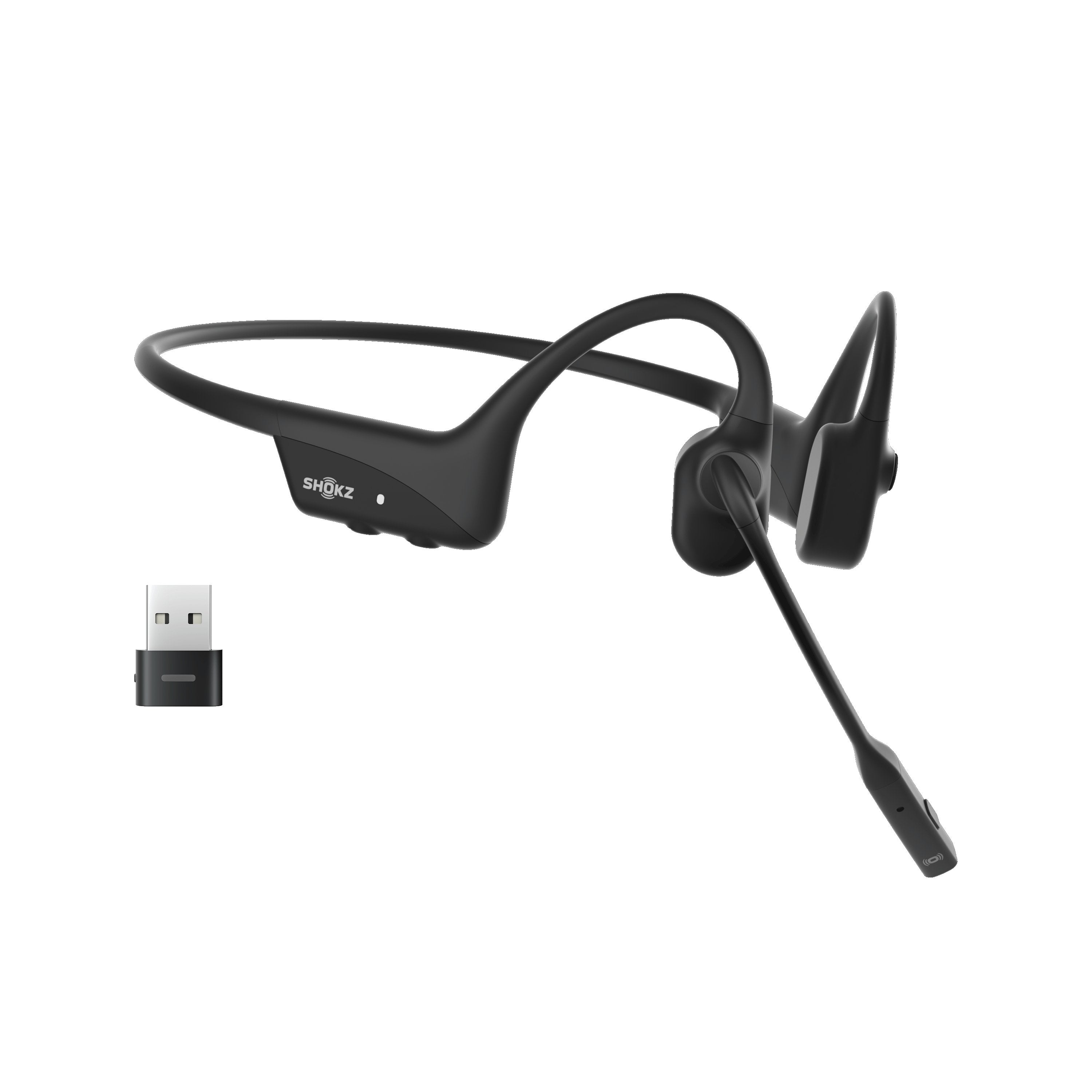
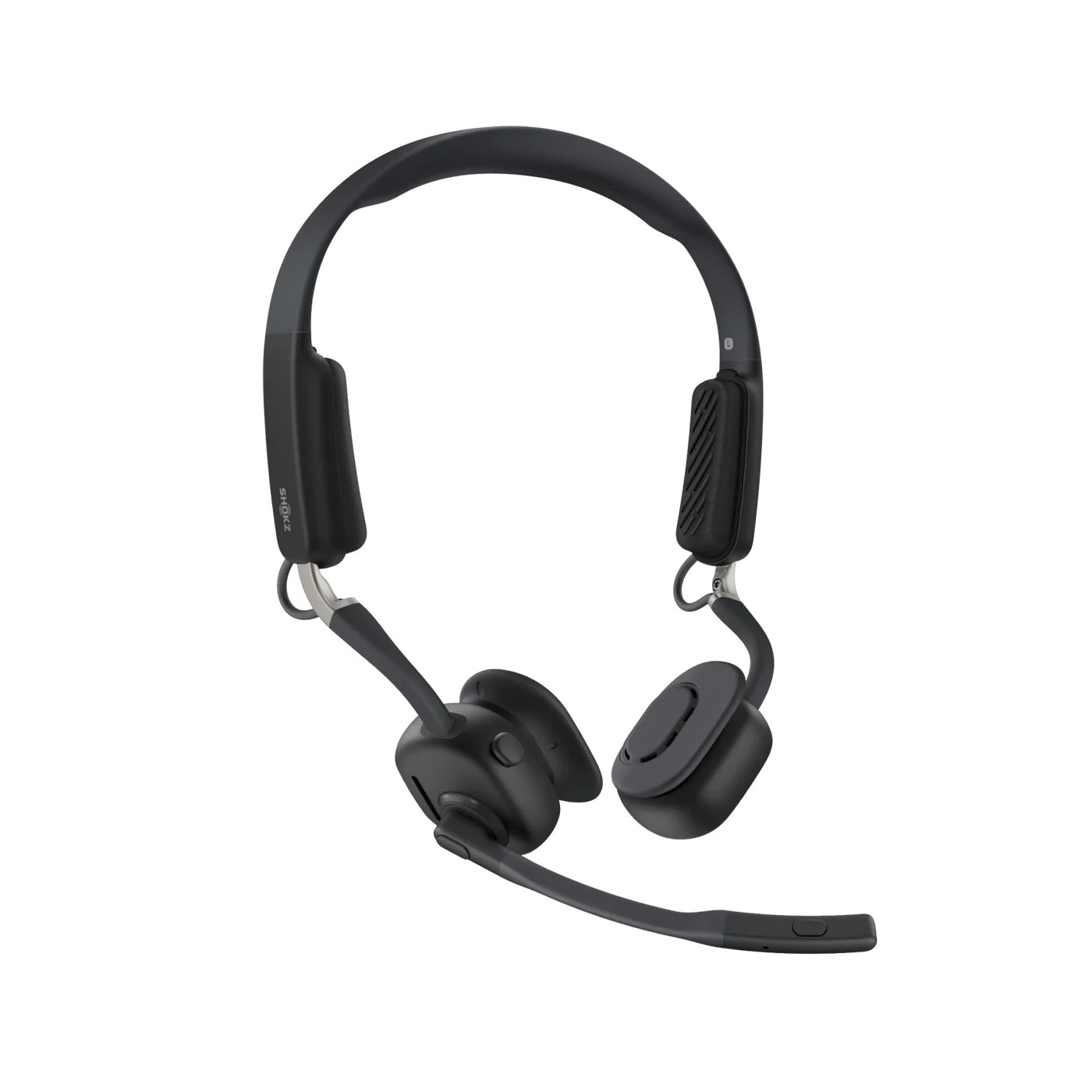

2 comments
Rob Redli
Hello. Thank you for the review. Is it possible to control Teams on a Windows machine with the UC Bluetooth dongle, for instance end a call, mute Teams (it mute Teams as opposed just microphone on the headset) etc. Thanks again.
-Steve
Two other aspects highlighting the unique features that you might want to point out;
1. The ability to wear these and have full UC connectivity in hazardous environments where you need to hear all surrounding sounds (beeping machinery, alarms, sirens, etc.). This is critical in industrial settings as well as driving (most states don’t allow your ears to be covered/plugged).
2. The ability to use these without taking hearing aids out. This is obviously a deep subject, but the short of it is that they don’t interfere with the in-ear or behind the ear units themselves.
hope this helps,
-Steve